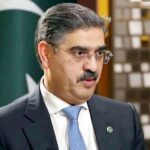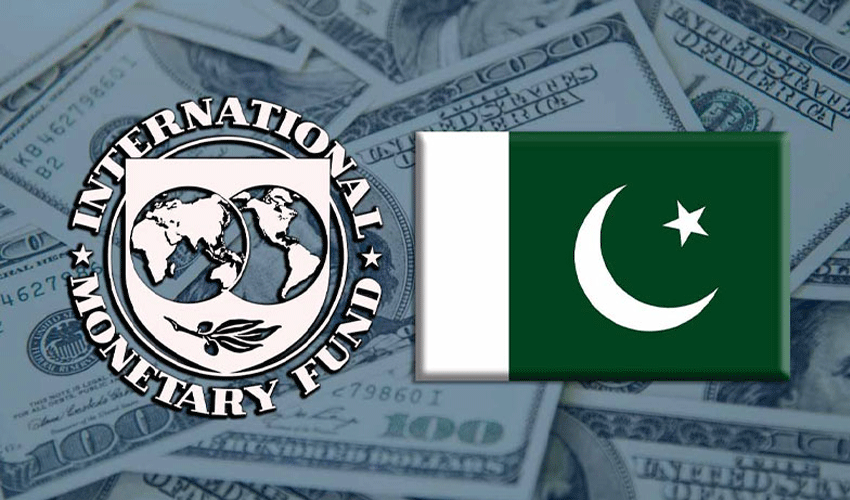In November, the caretakers had initiated a nationwide campaign to deport illegal foreign nationals, the majority of whom are Afghans. While the decision had prompted criticism from Afghanistan and several other quarters, the government refused to budge, insisting the move was not aimed at any particular ethnic group.
Of the more than four million Afghans living in Pakistan, the government estimates 1.7m are undocumented. So far, thousands of Afghans have returned home from the Torkham and Chaman border crossings.
Earlier this month, Chief of Army Staff (COAS) General Asim Munir had also backed the interim government’s decision to deport illegal foreigners, saying that they were “seriously affecting Pakistan’s security and economy”.
In an op-ed published in The Telegraph late on Sunday, Kakar said that over the last three to four decades, “between four and five million migrants (roughly the population of Ireland)” had arrived in Pakistan.
“Many have no right to remain. Despite being a non-signatory to 1951 Convention on Refugees (and its 1967 Protocol), we have generously accommodated the single largest caseload of refugees.
“Hospitality is in Pakistan’s DNA which is why we have, and will continue to fulfil our legal, moral and humanitarian obligations,” he said.
The premier said that Pakistan had worked very hard over a long period of time to accommodate “as many as we can while giving those with no right to remain ample opportunity to leave voluntarily”.
“Unfortunately, despite frequent opportunities to repatriate voluntarily, and multiple government attempts to register those who remain undocumented, a significant number has persistently refused to formalise their status, choosing instead to stay in the shadows,” he said.
He further said that while Pakistan had benefitted from “hard-working and law-abiding migrants”, the socio-economic and security cost of the influx had been “staggering.”
“Many work on the black market, paying no tax, depressing wages for legitimate workers. They are also susceptible to exploitation by the criminal underworld, with all its disturbing links to terrorist organisations operating in the region,” he said.
He further said that since August 2021, at least 16 Afghan nationals had carried out suicide attacks inside Pakistan, while 65 terrorists killed in encounters with security forces, mainly in the bordering region, were identified as Afghans.
“No responsible government can ignore such concerns. Whenever we raised this with the interim Afghan government, they advised us to ‘look inwards’. We have finally decided to heed to their advice to put our house in order,” PM Kakar said.
Without taking names, he said that the government’s “painstaking repatriation programme” had attracted “predictable criticism” from those who did not understand the complex history of the problem or the efforts made to avoid forcible deportations.
“Misinformation and unfounded allegations abound, especially on social media. In any such programme, there will always be a small number of particularly difficult cases. We felt — and continue to feel — a deep responsibility for the welfare of all of those being repatriated, which is why all officials involved in the programme are under strict orders to treat deportees with due respect and care,” he said.
Kakar said the government’s emphasis was on “voluntary, safe and dignified repatriation of individuals (along with their legally acquired assets), and not on deportation”.
He said that 93 per cent of those who had returned to Afghanistan had done so voluntarily. He also said that the government had set up 79 transit centres to provide free meals, shelter and medical facilities, adding that crossing points had been opened on the Pak-Afghan border to facilitate the process.
“Much has been made of the risk of persecution of those who return. We take this very seriously, and are reassured by the strong tribal and regional links between those who are being repatriated and the authorities in Kabul and Kandahar. The interim Afghan government has also shown visible concern for the welfare of those who return,” the premier said.
PM Kakar said that the “abrupt withdrawal” of Western allies from Afghanistan in August 2021 had prompted a whole new influx of refugees to Pakistan.
“Hundreds of thousands of Afghan nationals crossed the border, claiming their lives were in danger. Again, we take their welfare very seriously, recognising that some do require special protection.
“We will not deport at-risk groups, such as musicians, journalists, and human rights activists. We do, however, need help from other countries,” he said.
“Unfortunately, only 59,033 of the new arrivals have been resettled outside Pakistan, while 42,068 await evacuation to the west. The rest have failed to put forward a convincing case to anyone for asylum, and continue to stay in Pakistan illegally,” he further said.
He said that Pakistan today stood at the crossroads of history.
“We can no longer continue to compromise our national security by accommodating such huge numbers of undocumented individuals. Our ultimate aim is to build a safer, more peaceful and prosperous Pakistan — with associated benefits for our own people, for the region, and the wider world,” he concluded.






